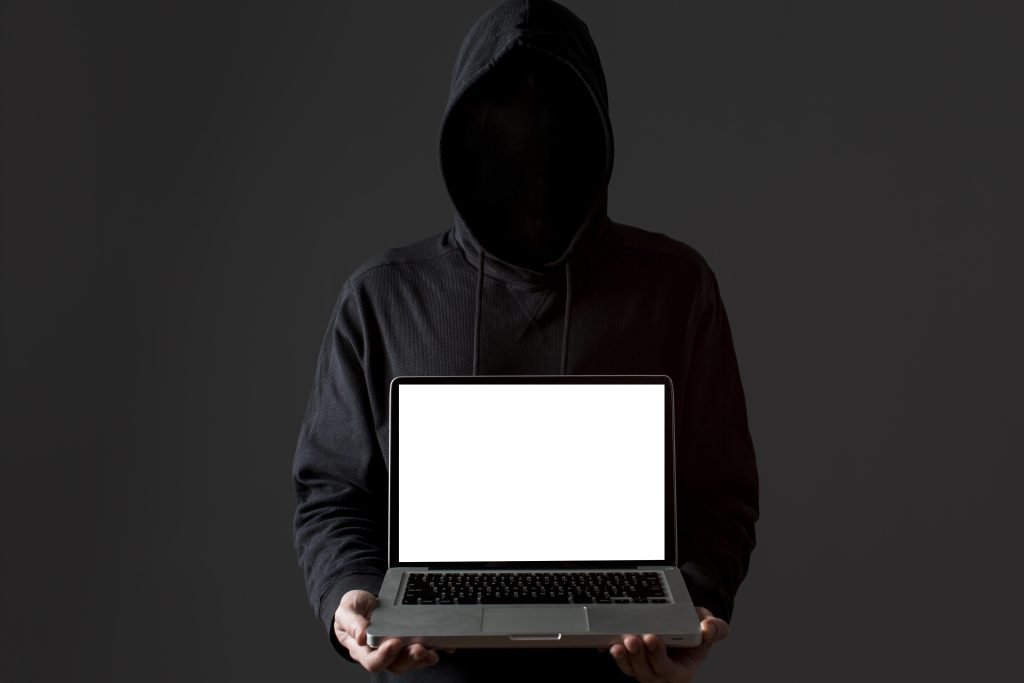The Dark Web is one of the most mysterious and misunderstood parts of the internet. It is often associated with illegal activity, but what exactly is it, and how do hackers use it to trade stolen data? More importantly, how can individuals and businesses protect themselves from dark web threats?
In this comprehensive guide by Creative Networks, we’ll explore What is Dark Web, how cybercriminals exploit it, and the steps you can take to prevent your personal and business data from being compromised.

What is the Dark Web?
The internet is divided into three layers:
- Surface Web: The part of the internet that is indexed by search engines like Google, Bing, and Yahoo. It includes publicly available websites such as social media platforms, news websites, and business pages.
- Deep Web: This includes content not indexed by search engines, such as private databases, academic journals, corporate intranets, and medical records. Access to these requires authentication (e.g., logging into a banking portal).
- Dark Web: A hidden section of the internet that requires a dark web browser like Tor (The Onion Router) to access. It is designed for anonymity, allowing users to operate without revealing their identity or location.
While the dark web is not inherently illegal, it has gained notoriety as a hub for cybercriminal activity, including hacker forums, black markets, and illicit trading of stolen data.
How Hackers Trade Data on the Dark Web
The dark web is a digital black market where hackers trade stolen data, including personal information, corporate secrets, and financial credentials. Cybercriminals use darkweb sites and darkweb markets to facilitate these transactions.
1. Stolen Personal Information
Hackers steal and sell personal data such as:
- Social Security numbers and national identity details
- Credit card and banking information
- Usernames and passwords for email, social media, and financial accounts
- Medical records and insurance details
2. Corporate Data Breaches
Hackers target businesses to gain access to:
- Customer databases
- Trade secrets and confidential company documents
- Employee payroll and HR records
- Intellectual property (e.g., software source codes)
3. Ransomware and Malware Services
Dark web forums offer ransomware-as-a-service (RaaS) and other malware tools that allow criminals to:
- Encrypt and lock victims’ data until a ransom is paid
- Conduct DDoS (Distributed Denial-of-Service) attacks
- Distribute keyloggers, trojans, and spyware
4. Fake IDs, Passports, and Counterfeit Goods
Criminals buy and sell forged documents such as:
- Fake passports and driver’s licenses
- Counterfeit money and cloned credit cards
- Black market weapons and illegal drugs
5. Hacking Services and Insider Threats
- Hackers for hire offer services such as hacking into email accounts, social media profiles, and corporate databases.
- Insider threats occur when employees leak or sell sensitive information on the dark web.
How to Access the Dark Web and Its Risks
How to Get on the Dark Web
Accessing the dark web requires specialized software such as:
- Tor Browser: The most commonly used dark web browser that anonymizes users by routing traffic through multiple encrypted nodes.
- I2P (Invisible Internet Project): An alternative to Tor, designed for anonymous communications and hosting darkweb sites.
The Dangers of Accessing the Dark Web
Even if you are only browsing, the dark web is highly dangerous due to the following risks:
- Malware and Viruses: Many darkweb markets contain hidden malware that can infect your computer and steal personal data.
- Scams and Fraud: Many sellers on the dark web operate scams, taking payments (usually in cryptocurrency) without delivering the promised goods or services.
- Law Enforcement Monitoring: Government agencies actively track dark web activity and may investigate users engaging in illegal activities.
- Identity Theft Risks: Simply accessing certain dark web sites can expose your IP address, making you a target for cybercriminals.

How to Protect Yourself from Dark Web Threats
1. Implement Dark Web Monitoring
Dark web monitoring services scan darkweb sites and hacker forums for leaked credentials and compromised data. If your information is found, you can take immediate action to secure your accounts.
2. Strengthen Cybersecurity Measures
- Use Strong, Unique Passwords: Avoid reusing passwords across multiple sites.
- Enable Multi-Factor Authentication (MFA): Even if a hacker obtains your password, they won’t be able to access your account without a secondary verification step.
- Monitor Financial Accounts: Regularly review bank statements for unauthorized transactions.
- Keep Software Updated: Ensure your operating system, applications, and security software are always up to date to patch vulnerabilities.
3. Avoid Phishing and Social Engineering Attacks
- Be cautious with suspicious emails and links. Many phishing emails contain malicious attachments or links leading to fake login pages designed to steal credentials.
- Verify senders before sharing sensitive data. Hackers often impersonate trusted institutions, such as banks or government agencies, to trick users into providing personal information.
4. Use a VPN and Secure Networks
A Virtual Private Network (VPN) encrypts your internet connection, making it harder for hackers to track your online activity. Avoid public Wi-Fi networks when accessing sensitive accounts.
5. Secure Your Business with Cybersecurity Solutions
For businesses, protecting sensitive customer and employee data is critical. Cybersecurity measures such as:
- Endpoint security solutions
- Zero-trust access policies
- Incident response planning can help mitigate the risks posed by dark web threats.
Final Thoughts: Stay Vigilant Against Dark Web Threats
The dark web is a hidden part of the internet where cybercriminals trade stolen data, sell illegal services, and conduct illicit activities. While some individuals use the dark web for privacy and anonymity, its dangers outweigh the benefits for most users.
Cybercriminals exploit stolen information for fraud, identity theft, and financial crimes. Dark web monitoring, strong Cybersecurity practices, and awareness of phishing scams are essential to minimize risks.
Individuals and businesses alike must take proactive measures to protect their sensitive information from dark web exploitation.
Secure Your Business with Creative Networks
At Creative Networks, we provide Comprehensive Cybersecurity Solutions, including Dark Web Monitoring, Endpoint Protection, and incident response services. Our experts help businesses safeguard their sensitive data and prevent unauthorized access before it becomes a major security breach.
Monitor and secure your sensitive data with Creative Networks’ Dark Web Monitoring. Detect breaches early and prevent cyber risks.
Don’t wait until it’s too late!
Contact Creative Networks today to strengthen your Cybersecurity defenses and protect your business from Dark Web threats




